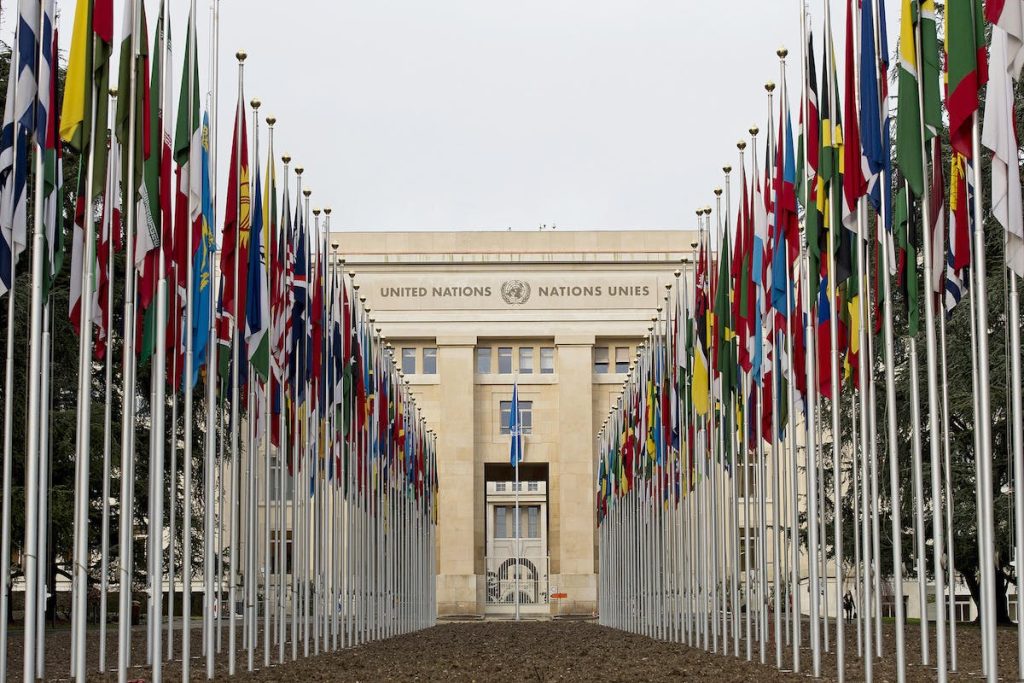By Nicole Savage. Nicole is currently on detail to WHO Headquarters in Geneva, Switzerland.
Every May, delegates from nearly all 194 World Health Organization (WHO) Member States descend on the mountain-lined city of Geneva, Switzerland for the World Health Assembly.
Delegates will review WHO’s lifesaving work and set new goals for the organization. This year’s challenges include improving access to quality medicines and vaccines, helping countries better respond to health emergencies—like the current Ebola outbreak in the Democratic Republic of Congo—and reducing the harmful impacts of climate change on health.
2018 is a special year for WHO, with next week promising these historic moments for global health:
- WHO Turns 70
April 7 marked the 70th anniversary of WHO, formally established in 1948. Over the next week at the World Health Assembly (WHA), WHO will celebrate its achievements while looking ahead.
Since its founding, the global guardian of public health has established a presence in 150 countries and has made historic strides in vaccinating children, containing disease outbreaks, setting crucial norms and standards, and helping babies get healthy starts. WHO’s massive immunization campaign wiped smallpox from the earth in 1980 – the first disease to be eradicated in human history. WHO’s collaborative efforts with partners have reduced polio by 99.99% worldwide and kept flare-ups of Ebola and Zika at bay.
Now, as global leaders battle a growing health scourge of superbugs that cannot be cured by traditional antibiotics, and a growing roster of nations take steps toward achieving health for all, WHO’s role as the international health watchdog and standard bearer is more important than ever.
- Tedros’ First Assembly
The 71st WHA marks the first annual WHO meeting under the leadership of WHO Director-General, Dr. Tedros Adhanom Ghebreyesus. Dr. Tedros was elected to a five-year term as Director-General by WHO Member States at the 70th WHA in May 2017, the first person from the WHO African Region in that role.
Immediately after taking office in July 2017, Dr. Tedros announced a bold vision for the Organization, outlining five key priorities: universal health coverage; health emergencies; women, children’s and adolescents’ health; health impacts of climate and environmental change; and WHO reform.
Dr. Tedros demonstrated his commitment to gender parity and equality at WHO by appointing an impressive new leadership team made up of 60% women.
He is now launching a transformative agenda to modernize WHO, making it more efficient, more effective, and better connected to civil society and young people. Under Dr. Tedros’ leadership, WHO is also revamping its communications and donor engagement.
- The 13th General Programme of Work
The most important moment at this year’s Assembly will be the Tuesday afternoon deliberation and vote on WHO’s proposed 13th General Programme of Work (GPW). Earlier this year, Dr. Tedros revealed his ambitious plan to guide the organization’s agenda from 2019-2023.
The GPW is framed around three “triple billion” targets:
- One billion more people with universal health coverage
- One billion more people protected from health emergencies
- One billion more people enjoying better health and well-being
The proposed General Programme of Work pushes WHO to align with the Sustainable Development Goals, improving health everywhere with greater collaboration, transparency, and urgency.
The UN Foundation is once again partnering with WHO to bring the excitement of the Assembly straight to you! Learn more about key health topics from WHO experts by tuning in to World Health +Social Good at 4pm CEST (10am ET) on Tuesday May 22, Wednesday May 23, and Thursday May 24. Submit your questions on WHO’s Facebook page or Twitter and follow the conversation with #WHA71 and #SocialGood.

